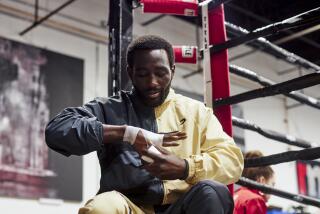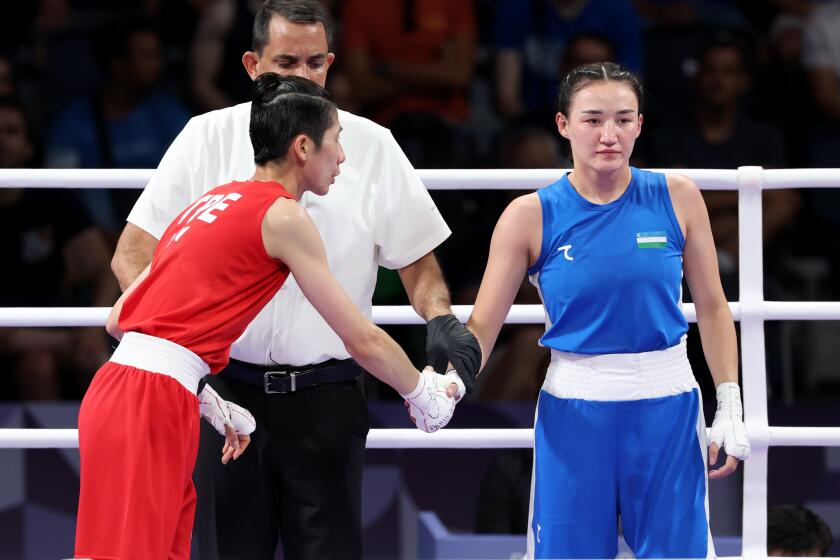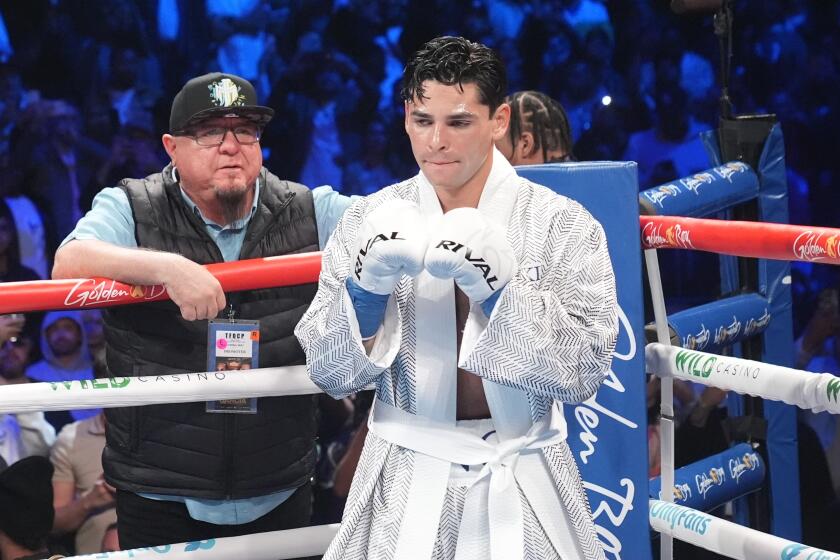The Hot Corner
A consumer’s guide to the best and worst of sports media and merchandise. Ground rules: If it can be read, played, heard, observed, worn, viewed, dialed or downloaded, it’s in play here.
What: “Sugar Ray Robinson: The Bright Lights and Dark Shadows of a Champion”
Where: HBO
When: Tonight, 10.
The rather lengthy title tells the story of this excellent one-hour documentary on the life of one of boxing’s all-time greats, Sugar Ray Robinson.
Born Walker Smith in Detroit in 1921, he began boxing at age 13 and had an 85-0 record as an amateur. When he was 15 he showed up for a fight without documentation and his trainer handed him a card with the name Ray Robinson on it. The name stuck, and “Sugar” was added later.
Robinson turned pro in 1940 and was the world welterweight champion by 1946, when world titles meant something. He defended that title five times and won the middleweight title by battering Jake LaMotta on Feb. 14, 1951, in the “Valentine’s Day Massacre.” It was the sixth time those two fought and Robinson went into the fight with a record of 120-1-2.
Robinson finished his 24-year pro career with a record of 175-19-6 (109 knockouts and two no-contests). He retired in 1965 at 44. Joe Louis called him the “greatest fighter to ever step into a ring.”
But then there is the other side of Robinson, which is explored by Emmy Award-winning producers Kirby Bradley and Jack Newfield, who also did “Sonny Liston: The Mysterious Life and Death of a Champion.” Ring magazine editor Nigel Collins provides much of the commentary.
Robinson was married three times, first as a teenager--a union that produced a son, Ronnie Smith, but one that was annulled. In his second marriage he had a second son, Ray Jr. Both sons appear in the documentary.
Says Ray Jr.: “When Dad and Mom got divorced, she came to me and said, ‘I want you to know that I love your dad, but I really don’t want to take any more beatings, and I’m tired of his messing around.’ ”
But Ray Jr. also expresses love for his father and nearly breaks down as he talks about the good times. “His passing [in April 1989 at 67] profoundly affected me,” Ray Jr. says.
Former welterweight and middleweight champion Carmen Basilio says: “When he died, I said, ‘I don’t give a . . .’ And there’s no sense in putting on an act now to feel sorry for the son of a . . . . because he was the most arrogant person you’d ever run into.”
Says Newfield, a boxing journalist: “There is a quirk in American hero worship where people love you more if you have been humbled once or twice, if you seem vulnerable, if you have a weakness. I think this is true of Robinson. After he lost a couple of times, when he reached the level of being a mere mortal and not a god, then I think he became more and more popular.”
More to Read
Go beyond the scoreboard
Get the latest on L.A.'s teams in the daily Sports Report newsletter.
You may occasionally receive promotional content from the Los Angeles Times.










